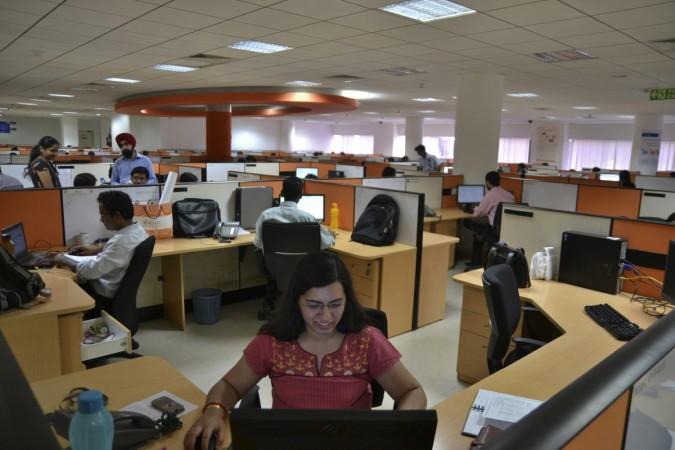
Indian's National Association of Software and Services Companies (NASSCOM) has said that the United States needs to consider the dearth of specific skill shortage in America before introduction of bills like the latest one targeting the H1-B visa holders. The bill was introduced in the United States House of Representatives by California Congressman Zoe Lofgren on Monday.
Also read: US President Donald Trump to target tech firms and H1-B visas next
The bill, among other things, called for doubling the minimum salary of H-1B visa holders to $130,000 from the current minimum wage of $60,000. However, NASSCOM, the Indian IT trade association, has said that if passed, the bill will deal a huge blow to the migrant workers dependent on the H1-B visa, particularly the Indian workers. The bill will make it difficult for firms to use the programme to replace American employees with foreign workers.
"My legislation refocuses the H-1B programme to its original intent — to seek out and find the best and brightest from around the world, and to supplement the US workforce with talented, highly-paid, and highly-skilled workers who help create jobs here in America, not replace them," Lofgren said while introducing the bill.
US President Donald Trump's promise on actions to restrict the H1-B visa has already got foreign workers dependent on the work visa worrying, as IT stocks fell 2.83 percent after the news targeting H1-B visas was reported. US is estimated to account for almost 65 percent of all software exports from India; however, the revenue generated by the companies through H-1B visa employees is much smaller.
NASSCOM in a statement said that the Indian tech workers need not worry much as the bill has just been introduced, and will need to go through several legislative discussions at the US Congress and Senate before it can become a law. The Lofgren Bill contains certain provisions, which may prove challenging for the Indian IT sector.
"Since the rationale for the Administration and the Legislative wing is to protect job opportunities for Americans, our strong suggestion is that they should carefully calibrate the conditions keeping in mind the skill shortage in the US. Once that is done, they should not leave any loopholes in the rules being framed that leave some channels open for circumventing the limits," R. Chandrashekhar, the president of NASSCOM, said.
The association said that it will continue to engage with the US administration and legislators both directly and through Government of India with a focus on highlighting the value contribution of India's IT sector as a "net creator" of jobs in the US. The IT lobbying group said that India's IT sector has helped American businesses by providing high-skilled IT solutions in order to innovate, open new markets, and expand operations – creating thousands of jobs for Americans.
The trade association also came out with a set of provisions that the Lofgren Bill did not consider. NASSCOM said:
1. The bill does nothing to address the underlying shortage of STEM-skilled workers, which has led all companies to have a calibrated strategy of hiring locally and bridging the skills gap by bringing skilled workers on non-immigrant visas, including H-1Bs.
2. The bill does not treat all IT service companies with H-1B visa holders equally, and the provisions are biased against H-1B dependent companies.
3. The bill does nothing to consider regional variations in salary structure, which could help some states and hurt others.
4. The higher wage level would have ripple effects for many other industries, including nursing, engineering, life sciences, and others.
"Raising wage levels for dependent companies alone will defeat the basic objective as non-dependent companies can continue to bring in skilled workers at lower wage levels, thereby nullifying the objective of protecting job opportunities for American nationals," Chandrashekhar added.
The US H1-B visa is a non-immigrant visa, which allows firms to hire foreign workers in specialised occupations. The H-1B and L1 work visas are majorly used by Indian IT professionals. Currently, the cap on H1B visas stands at 65,000, out of which 25,000-35,000 are issued to Indian nationals.
Trump's administration officials have reportedly drafted a new executive order, which aims at overhauling the H-1B work-visa program, which is majorly used by technology companies to get top foreign engineering talent to their US-based locations. With restrictions on the visa, it will become tough for these firms to hire appropriate talent for the specific jobs.
















